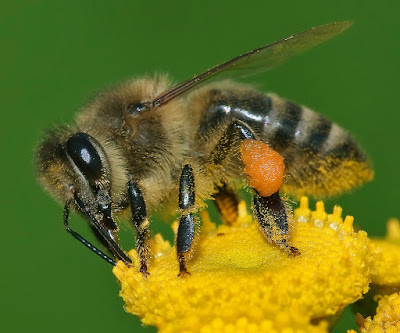To bee or not to bee, that is the question. Whether tis nobler in the hive to suffer the mites and diseases of outrageous nature, or....................to grow beets.
I've come to accept that for now at least, I do not have the husbandry habits to be a beekeeper. Chickens? Pigs? Other critters, yes, but bees seem to be a combination of bother with protection, non chemical hive health management, and remembering to tend them with some regularity that it's not working for me. They seem so self sufficient most of the time, and it just slips my mind, or when I do think of checking on them, I just say one more day won't hurt.
Keeping bees alive through Wisconsin winters and dealing with colony collapse, varroa mites and other pests requires more attention and interest than I have been able to give. Even long time beekeepers lose a lot of hives each year.
But I also know that I have an incurable sweet tooth, and there are a reasonable number of native pollinators that can do the honors in spring when the flowers bloom.
I've been tapping a few box elder and maple trees for a bit of syrup, which been great, but it's good to have redundancy in as many things as you can.
So, letting the hives stand empty for now. I plan to try growing sugar beets for the first time this next garden year. I've read up on it a bit, and found some methods described to extract and distill the sugar ( they are 20% sugar content by one source) that don't sound too tricky.
Wash, shred, boil in water, strain, cook down, how hard could it be? We'll find out this fall.


